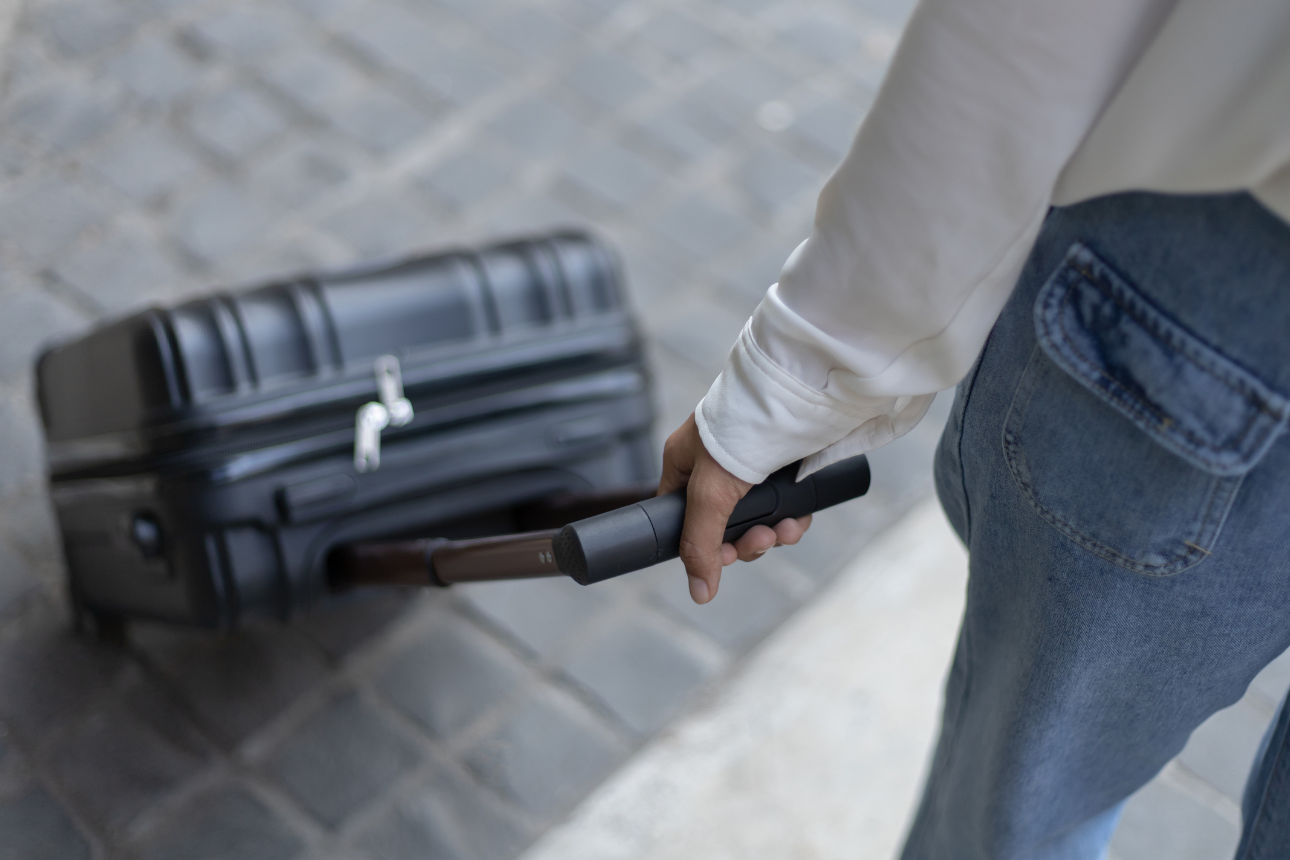Travel insurance is your safety net should anything go wrong on your overseas trip. Here’s what you need to know before you buy.
On this page
- Levels of travel insurance cover – budget or comprehensive; single- or multi-trip policies
- Travel insurance policy cost
- What’s excluded from most travel insurance policies?
- The travel insurance excess
- Travel insurers with the best customer service
- When to use domestic travel insurance
- Making a travel insurance claim
- Disputes with travel insurers
- Travel insurance checklist

Levels of travel insurance cover – budget or comprehensive; single- or multi-trip policies
Insurers sell different policy options, such as comprehensive or budget cover.
Comprehensive travel policies are more expensive than budget options. However, they have higher cover limits and provide cover for a broader range of circumstances. For example, a budget policy might have a limit of $500 for a missed connection, while a comprehensive policy could cover up to $15,000.
Budget travel insurance policies: If you can only afford a budget policy, make sure it covers medical expenses and personal liability in case you accidentally injure someone or damage something.
Single- or multi-trip insurance policies: Most of us will be best serviced by a single-trip policy. However, if you have multiple trips planned within a 12-month period, a multi-trip insurance policy may work best. Generally, multi-trip insurance policies have a cap on the length of each individual journey, for example, 60 days.
Buying insurance from a travel agent
Travel agents generally on-sell an insurer’s policy rather than offer their own policies.
The two travel agencies that appeared in our travel insurance satisfaction survey have partnered with insurers to sell the insurance companies’ policies. For House of Travel, it’s Allianz. Flight Centre is with Mitsui Sumitomo Insurance.
Our survey respondents scored House of Travel significantly below average for price and value for money. They also thought its policy was hard to read. Flight Centre fared better but was still below average overall.
While it may be easier to buy your insurance from a travel agent, we recommend shopping around online to find the best deal.
The travel insurance that comes with credit cards
Some credit cards include a built-in insurance.
You’ll need to activate the insurance with the credit card’s bank and pay for some of your trip with the credit card. Some cards will stipulate how much you need to spend to activate the insurance.
There will also be limits on the length of journey the insurance will cover. This ranged from 35 to 120 days for the cards we looked at. However, the policies are likely to cover an accompanying spouse and children.
There may also be an age limit on the policy. This means you may have to complete an eligibility check.
Our surveying has found people are satisfied with their credit cards’ travel insurance. It appears the main reason for this is because the insurance comes free with their credit card.
When to buy travel insurance
You can buy travel insurance at any stage before your trip, but the earlier you buy it, the better. You might get sick or something might happen in the country you’re heading to – say riots or a volcanic eruption – before you get your insurance. In that case, you’re unlikely to get cover for any cancellation and could lose the cost of your flights and anything else you’ve already paid for.
Compare travel insurance policy details
It always pays to check the cover. What’s standard cover in one policy may be an optional benefit in another – or may not be covered at all.
It’s especially important to check:
the medical coverage
personal liability
what happens if your belongings get stolen.
Rental car excess may also be handy if you’re hiring a car on your trip. For the full details, check our travel insurance policy comparison.
Travel insurance policy cost
We asked 12 insurers about how much their premiums cost for a comprehensive policy for two travellers making two journeys each to four different destinations: a 45-year-old and a 70-year-old both heading to Australia, the United States, France and Japan. One journey to each destination was for a week. The second was for a month.
Based on the median price we were quoted, for all the journeys, travel insurance for the USA was the most expensive. Perhaps not surprisingly, heading across the ditch was the cheapest.
While cost is important, it’s best to check it against the policy details to make sure you’re getting value for money. Check our travel insurance price and policy comparison.
Why you should pay for your trip by credit card
The fine print of most travel insurance policies most likely includes an exclusion from cover for airlines, tour operators or travel agents going bust.
You’re only likely to get back your money in these situations if you paid for the flights (or trip or tour) on your credit card. That’s the only way you can apply for a chargeback. There are time limits for applying for a chargeback. Generally, you have up to 120 days from the date of the transaction.
Comprehensive travel insurance cover
Comprehensive travel insurance covers:
belongings
bookings
medical expenses
personal liability
rental vehicle excess.
Belongings covered under travel insurance
Travel insurance covers your belongings up to a limit. With some insurers, that limit is as much as $30,000. For others, it can be $8,000 or less. That’s why it’s important to check you have enough cover.
Most policies will also have set limit amounts for laptops and smartphones and cash thefts.
Bookings covered under travel insurance
Most comprehensive insurance policies provide built-in cover for non-refundable travel and accommodation costs if you cancel or cut short your trip due to an unforeseen event (such as illness).
You won’t be covered if you cancel just because you’ve changed your mind.
Travel insurance can also help if you miss a connecting flight due to circumstances beyond your control. Comprehensive insurance policies cover alternative transport to get you to your destination – and most will pay extra to get you to a special event on time. They may also provide allowances for extra costs, such as accommodation if your trip is interrupted after a certain stage.
But your travel insurance will not cover you if:
you turned up late
you got the wrong visas for your trip
you knew your trip might be shortened before you took out the insurance
your transport or tour provider goes bust.
The only way you might get back your money when your transport or tour provider goes bust is if you paid for the flights (or trip or tour) on your credit card.
Double-check your insurance will cover use of Airbnb or a similar holiday home service.
Typically, travel insurance will cover you for any damage you cause to a hotel. However, some insurers make an exception for peer-to-peer rentals, that is, situations where consumers rent items from other consumers, for example Airbnb. Under Airbnb’s terms, guests are legally responsible for all damage caused to the host’s home, even if the host has home and contents insurance. Check with your insurer to confirm you have cover.
Medical expenses covered under travel insurance
If you fall sick while you are travelling, travel insurance covers the cost of treatment at a doctor’s clinic or hospital overseas. If a doctor says you’re too sick to continue your trip, your insurer can help organise and pay for you to get home.
However, travel insurance may not cover:
an injury or illness caused by a medical condition you had before you travelled
injuries resulting from being on drugs or drunk
medical tourism (that is travelling to another country for a medical or dental procedure)
complications late in pregnancy.
Some policies have limited cover for emergency dentistry.
Personal liability covered under travel insurance
Personal liability covers you for damages or legal expenses that you are responsible for while overseas. Cover limits for personal liability range from $1 up to $5 million.
However, your travel insurer won’t cover your legal liability if you crash any motorised vehicle into someone or something.
If you’re renting a vehicle, you’ll be relying on the insurance offered by the car rental company. It pays to check you have cover before you drive off.
Your personal liability may not be covered if:
you recklessly or purposefully cause damage (for instance, while you’re drunk)
you’re required to pay an enforced fine rather than compensation for something you damaged.
Rental vehicle excess covered under travel insurance
Some travel insurers include cover for rental vehicle excess within their policies.
Rental vehicle excess is the amount the rental company will charge you if you make a claim. This excess can run into thousands of dollars. The rental company will give you the option of reducing the excess for a fee. However, you don’t have to pay this fee if your travel insurance already covers the excess.
Some insurers only offer this cover as an optional extra. If you plan on hiring a car overseas, double-check with your travel insurer that you’re covered for the excess.
Travel insurance for cruises
Some travel insurers include cruise cover in their comprehensive policy. Others have it as an optional extra. If you are taking to ship life for your holiday, double-check cruise cover is included in your insurance. You don’t want to be lumbered with a massive bill for being helicoptered off the ship should the worst happen.

What’s excluded from most travel insurance policies?
Pre-existing health conditions
Pre-existing health conditions are health issues you had before taking out insurance. Typically, travel insurers won’t cover a pre-existing illness or injury (or any linked problem) unless you discuss it with them first.
Some insurers list the health conditions (for example, coeliac disease, epilepsy and hypertension) they automatically cover provided the condition is well controlled. Even if your health condition is not on the list, you might be able to get travel insurance cover if you pay extra. If cover for your pre-existing condition is available, don’t travel without it. A massive overseas medical bill isn’t the souvenir you want to bring home.
Some holiday activities
Travel insurance generally excludes riding on a scooter or motorbike that has an engine bigger than 200CC, whether as a passenger or the driver.
Other action sports and thrill-seeking activities – think snowboarding, bungy jumping or hot air ballooning – are also likely to be excluded.
Check the fine print of your policy if you’re planning any daredevil activities. You can add activities onto your policy, but it may make the policy more expensive.
Civil unrest
Many travel insurers exclude civil unrest and rioting from their cover.
If you’re in a country when unrest breaks out, get in touch with your insurer as soon as you can. If you’re still in Aotearoa when the unrest takes place, get in touch with your insurer and airline to discuss your options.
If you’ve already paid for your tickets and accommodation but haven’t bought travel insurance before unrest breaks out, you are unlikely to get cover. And if it’s no longer safe to travel to that destination, you could find yourself out of pocket.
Before you book anything, you might want to check the travel advice provided by the government on the Ministry of Foreign Affairs and Trade’s SafeTravel website.
The travel insurance excess
If you make a claim on your travel insurance, you’ll normally have to contribute some money towards covering your loss. The amount you have to pay is called the excess.
If you’re happy to cover smaller losses yourself, some insurers will allow you to increase the excess in exchange for a lower premium. Others will let you choose a lower (or nil) excess, but you’ll pay more in your premium.
In our premium survey, the excess was between $100 and $200.
Travel insurers with the best customer service
Three providers took out the top spot for travel insurance in our recent customer satisfaction survey.
BNZ Bank, Southern Cross and AA Travel Insurance took out the top spot, with 56% of their customers very satisfied with their services.
They were closely followed by Westpac (55%) and 1Cover and ANZ Bank, both on 54%.
BNZ Bank scored highly for its value for money and price. Southern Cross customers were very satisfied with its communication and easy-to-read policy document. AA Travel Insurance was also valued for its communication and its ability to tailor advice to customers’ needs.
The banks scored higher than average for the low price of their travel insurance. This is probably because travel insurance is free with certain banks as part of credit card reward schemes.
At the other end of the scale, House of Travel performed the worst with just 35% of its customers very satisfied with its overall service. Three things let it down: its value for money, price and a policy document that was hard for customers to understand.

When to use domestic travel insurance
Most people don't bother with insurance cover for local holidays.
ACC and our national health system are available when you’re on holiday in New Zealand, and most contents insurance policies will cover your belongings.
However, if you’ve got a big holiday planned that will see you travelling around the country over several months, you may want to get travel insurance. This insurance would cover domestic cancellation fees and lost deposits, travel delays, missed connections and rental-vehicle excesses.
Making a travel insurance claim
If you hit a snag on your holiday, contact your travel insurer as soon as you can to confirm what cover it will provide. This is particularly important for big expenses, like hospital bills.
You’ll also need to start gathering evidence to back up your claim.
Here are our tips for collecting evidence for particular claims.
Medical: Collect medical or dental reports from your overseas medical practitioner. You may also need to give your travel insurer an itemised list and receipts to prove the cost of your treatment.
If you’re injured or fall sick, you may have to pay medical expenses upfront and claim compensation from your insurer afterwards. Insurers can provide payment guarantees to hospitals if necessary.
Belongings: Notify the local police within 24 hours if your belongings are stolen. Contact your travel provider within 24 hours if your luggage is damaged or missing. Get a written statement to show you reported the incident. You may also need to provide your travel insurer with receipts or other documents to prove you owned the items in question.
Take photos of your bags and their contents before you leave. The photos may come in handy if your luggage goes AWOL.
Rental vehicle excess: Your travel insurer will want copies of the rental agreement, incident report and repair invoice for claiming back the excess after damaging a rental vehicle.
And again, take your own photos of the damage to the vehicle.
Delayed luggage or transport: When your transport is cancelled or your luggage is lost or delayed, in the first instance, claim compensation from the travel provider. If you’re still out of pocket, you can then turn to your insurer. However, you’ll need to supply paperwork from the travel provider detailing the compensation you’ve already received.
Disputes with travel insurers
If you’ve made a claim but it’s been rejected, your first port of call is the insurer’s formal complaints process. This will be outlined in your policy.
If you and your insurer can’t settle a dispute, you can complain to your insurer’s independent dispute resolution service. The main one used in Aotearoa is the Insurance and Financial Services Ombudsman Scheme.
Travel insurance checklist
Pre-departure
Buy travel insurance as soon as you make your first booking. That way you’re covered if circumstances change and you need to alter your travel plans (though you’ll need to note any policy exclusions).
Declare any pre-existing conditions. It will likely cost extra to get cover for pre-existing conditions but it could save you hundreds of thousands in medical bills. Make sure to include old injuries as well as illnesses, and the health conditions of any close family staying at home.
Read the terms and conditions and check the limits carefully. Pay close attention to the exclusions. If you don’t think the policy is suitable, see if there’s a cooling-off period, where you’ll be able to get your money back if you change your mind (providing you haven’t departed or made a claim).
If in doubt, ask your insurer. If you have any questions, phone your insurer and check – and keep a record of the call, who you spoke to and what they said. Check the latest travel advice for your destination. Visit the Ministry of Foreign Affairs and Trade’s website safetravel.govt.nz. While you’re there, register your travel details.
Print a copy of your travel policy with any emergency assistance numbers. Keep a copy in your hand luggage.
Photograph your belongings (especially any valuables) as you pack. If something goes missing, you’ll have to prove ownership. Taking a photo is often easier than tracking down an old receipt.
Pack expensive items, including cash and electronic devices, in your hand luggage (if the rules allow). Some policies refuse to cover valuables in your checked bags.
Travelling
Use the room or hotel safe. Insurers won’t pay for unsecured valuables and may deem expensive items, such as laptops or jewellery, left in your hotel room fall under this description.
Add large holiday purchases to your policy. If you buy anything expensive on holiday, contact your insurer. Ensure you can add this on to your current policy.
Call your insurer ASAP for any claim, big or small. Insurers commonly require you to get large expenses – such as big hospital bills – pre-approved.
Notify the police or service you’re travelling with as soon as possible if something is lost or stolen. Many insurers require you to file the official paperwork (whether the airline loses your bag or someone steals your wallet) within a set time, for example 24 hours.
Keep all receipts and documents related to a claim. Insurers will want as much paperwork as possible, even small receipts for meals if your flight’s been delayed.
Filing a claim
Always tell the truth. Small “white lies” could see your claim refused and could have an impact on your ability to get insurance in the future.
If declined, argue your case. Some claims fall into a grey area – such as how long you have to leave a bag for it to be “unattended in a public place”. It can be worth asking your insurer to reconsider. Alternatively, if you’re a Consumer NZ member, you can call our advice line about your case.
You can ask for an independent review. If you have a dispute with your insurer, you can take a complaint to its independent disputes resolution service. Travel insurers belonging to the Insurance Council of New Zealand are bound by its Fair Insurance Code.



